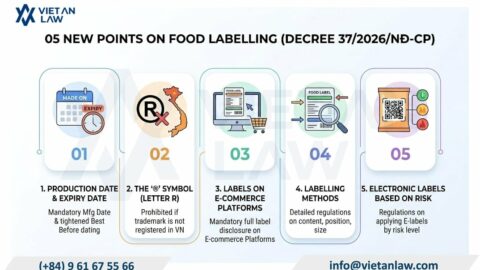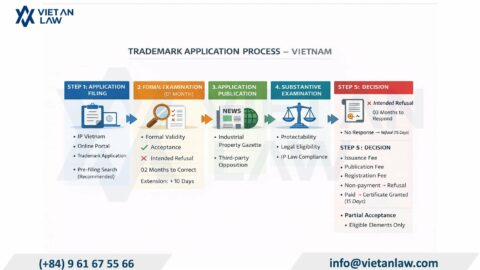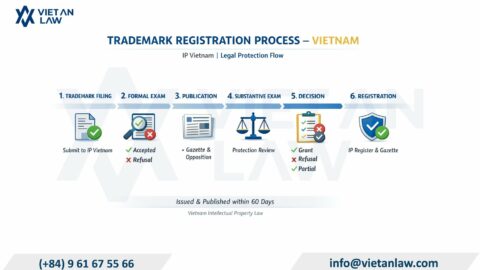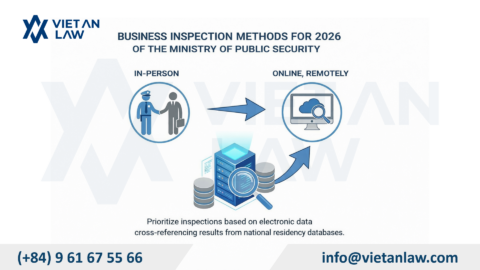Artificial Intelligence (AI) is increasingly playing an important role in various fields of social life and the global economy. However, the rapid development of AI technology also leads to many legal issues, especially disputes related to intellectual property rights (IP rights), data protection, legal responsibility, and contractual matters. In the following Article, Viet An Law Firm will present some key points on Artificial Intelligence (AI) dispute resolution in Vietnam.
Table of contents
Artificial Intelligence (AI) is a field of computer science focused on establishing systems capable of performing tasks that typically require human intelligence. The use of AI has become increasingly popular and can be seen as a powerful tool for humans in various social activities.
Currently, some people believe that AI has become more intelligent than humans and could potentially replace humans in the near future. So, from a legal perspective, can AI be considered a subject in legal relationships?
Article 1 of the Civil Code 2015 stipulates the following:
“The Civil Code provides the legal status, legal standards for the conduct of natural and juridical persons; the rights and obligations of natural and juridical person (hereinafter referred to as persons) regarding personal and property rights and obligations in relations established based on equality, freedom of will, independence of property and self-responsibility (hereinafter referred to as civil relations).”
Thus, the Civil Code 2015 only regulates relationships between natural and juridical persons. Therefore, AI is not considered a subject in legal relationships.
Additionally, according to the provisions of the Civil Code 2015, a subject in a legal relationship must meet two requirements:
However, AI is currently still just a tool programmed and controlled by humans, without independent will or legal responsibility like individuals or legal entities.
The rapid development of AI has also led to many practical disputes surrounding this issue. Below are some common disputes related to artificial intelligence (AI).
Artificial Intelligence (AI) is increasingly involved in various fields, from healthcare and transportation to finance. However, when AI causes damages, such as in self-driving car accidents, incorrect medical diagnoses, or misguided financial decisions, the question arises: who will be held liable for compensation?
Currently, liability is primarily assigned to two parties as follows:
According to the general principle of tort liability outlined in Article 584 of the Civil Code 2015, the party at fault for allowing AI to cause damages is liable for compensation.
However, as AI continues to learn and make decisions beyond human control, can AI itself be considered a “subject” responsible for legal liability? Many countries are still debating this issue. Some have proposed building up an AI liability insurance fund to compensate for damages, while others support amending laws for more specific regulations. Overall, it is necessary to establish a clear legal framework to determine liability for damages caused by AI, ensuring fairness and protecting human rights.
Currently, the laws in most countries, including Vietnam, have not recognized AI as the author or legal owner of a work. As mentioned earlier, AI is not considered an independent subject in legal relationships and does not have independent creative will. This leads to disputes between the parties involved, including programmers, AI development companies, and AI users, regarding intellectual property rights over works created by AI.
Several real-life cases have sparked much debate, such as the painting “Théâtre D’opéra Spatial” created by AI but submitted for a contest under a human’s name and winning a prize, raising copyright questions. Some argue that AI is just a tool, and ownership belongs to the person who created or used it. However, as AI becomes more autonomous in its creative process, the question of the true author of the work becomes more complex.
Although disputes related to AI have been gradually increasing, resolving these issues is not simple. Some major challenges in addressing AI-related disputes include:
AI is an emerging technology, but the legal frameworks in many countries have yet to adapt accordingly. Most of the current regulations are still based on traditional principles, which are not detailed enough to address disputes related to AI. For example, IP rights for works created by AI or legal liability when AI causes damage remain highly controversial, as we discussed earlier.
AI operates based on the collection and processing of data, but the use of personal data without consent can violate privacy protection laws such as the GDPR (Europe) or other data protection laws. When privacy disputes arise, tracing and determining responsibility between the AI development company, the AI operations unit, and the user becomes very complicated.
AI is not limited by national borders. An AI can be developed in the United States, trained on data from Europe, operated in Asia, and cause legal disputes in yet another country. This creates legal conflicts between countries, as each country has different legal systems regarding AI, intellectual property, and privacy.
AI is a complex technology that requires deep knowledge of algorithms, data, and machine learning systems. However, not all competent authorities or individuals have sufficient knowledge of AI to make fair and reasonable judgments. This makes the dispute resolution process slow and challenging.
AI can learn by itself and change its behavior over time, making it difficult to identify the original fault. For example, a financial AI system may function well for a long period but later make serious mistakes due to uncontrolled self-learning. This poses a significant challenge in determining legal liability.
In the above article, Viet An Law Firm has presented legal issues related to Artificial Intelligence (AI) dispute resolution in Vietnam. If you have any questions regarding the article or need assistance with legal matters related to AI, please contact Viet An Law Firm for timely support.




